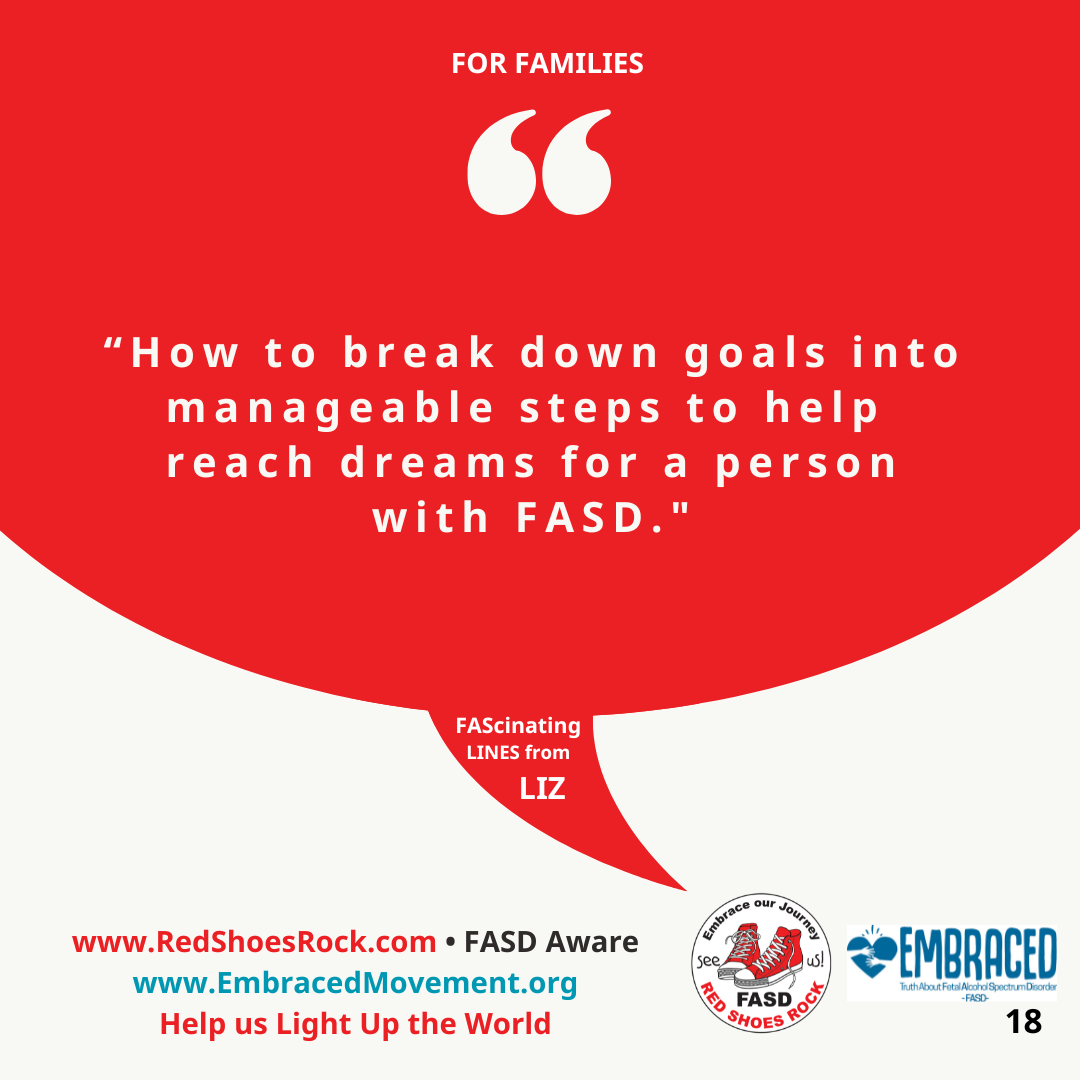While breaking down goals into tiny, manageable steps and celebrating each milestone seems like an ideal strategy, it can sometimes be less effective for individuals with Fetal Alcohol Spectrum Disorders (FASD) due to several unique challenges they face.
Here’s why this approach might not work as well for them:
1. Immediate Gratification Needs: Individuals with FASD often have difficulty with delayed gratification. While the strategy involves breaking down goals into steps with rewards along the way, even these interim steps can feel too long or abstract. They may need more immediate and frequent rewards to stay motivated.
2. Cognitive and Memory Issues: FASD can significantly impact cognitive functions and memory. Keeping track of steps, remembering what comes next, or even remembering to apply the strategy can be challenging. This cognitive load can make the approach less effective, as they might struggle to follow through without constant reminders and support.
3. Overwhelming Details: Even with broken-down steps, the overall process can still be overwhelming. Individuals with FASD might find it difficult to process and manage multiple steps, even if they are small. This can lead to frustration and disengagement from the task.
4. Emotional Regulation: FASD often affects emotional regulation, making it hard for individuals to cope with setbacks or perceived failures. If they struggle with a particular step or don’t receive positive reinforcement immediately, they might experience emotional distress, which can derail their progress and motivation.
5. Abstract Concepts: Understanding the abstract concept of working towards a larger goal through small steps can be difficult. They might not fully grasp the connection between the steps and the ultimate goal, which can reduce the effectiveness of the strategy.
6. Need for Consistency: The need for highly consistent and predictable environments means any inconsistency in applying the reward system can cause confusion and reduce its effectiveness. Caregivers might find it challenging to maintain the necessary level of consistency.
Alternative Approaches:
1. Immediate Rewards: Provide immediate rewards for each small achievement rather than waiting until a series of steps are completed. This could mean giving praise, a small treat, or a short break immediately after each task is done.
2. Visual and Simple Instructions: Use very simple, clear, and visual instructions for each task. Visual aids like pictures or diagrams can help individuals understand and remember what they need to do.
3. Frequent Breaks: Incorporate frequent breaks to prevent overwhelm and maintain focus. Short, frequent breaks can help manage cognitive load and keep motivation high.
4. Hands-On Assistance: Provide more hands-on assistance and supervision. This can help ensure that they stay on track and can receive immediate help if they encounter difficulties.
5. Personalized Rewards: Tailor rewards to individual preferences and needs. Immediate and personally meaningful rewards can be more motivating and effective.
6. Simplified Goals: Simplify the goals even further, making them as straightforward and easy to achieve as possible. This can help build confidence and a sense of accomplishment without overwhelming them.
By recognizing the unique challenges faced by individuals with FASD, caregivers can adapt strategies to better suit their needs, providing more immediate, clear, and supportive reinforcement to help them succeed.
